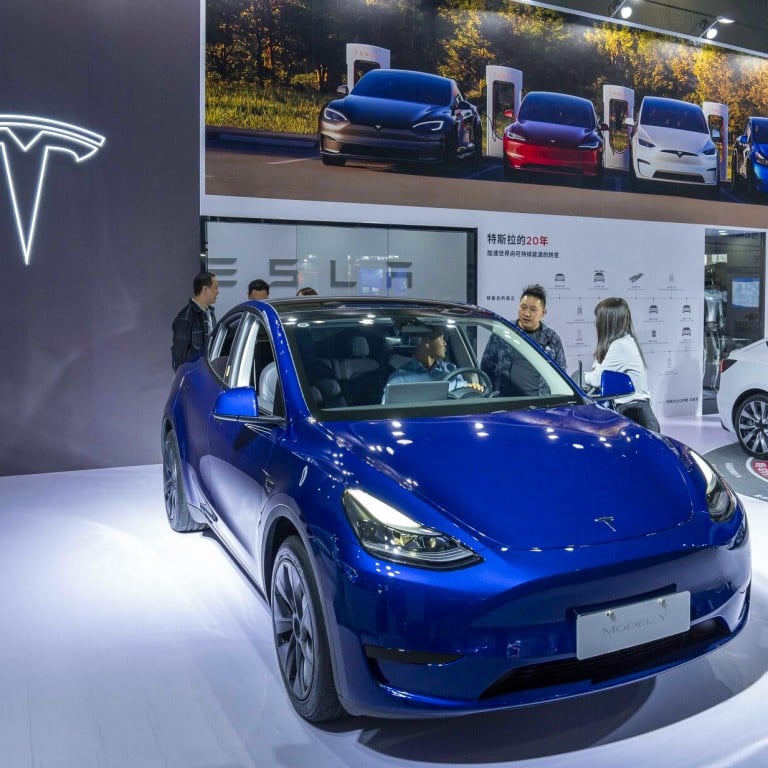
Tesla raises price of its Shanghai-made Model Y electric car, shrugging off price war squeezing its rivals in China
- The price of the Model Y rose by as much as 1.9 per cent in a move analysts said is unlikely to affect sales
- It sends ‘a clear message to the Chinese EV market that the US carmaker is not worried about the bruising price war,’ says one car sales manager
The basic Model Y is now priced at 263,900 yuan (US$36,519), up 1.9 per cent from 258,900 yuan, according to the Texas-based carmaker’s local website.
The Long Range version went up in price by 5,000 yuan, or 1.7 per cent, to 304,900 yuan, while the Performance edition saw an increase of 5,000 yuan, or 1.4 per cent, to 368,900 yuan.
“The small price increases will have only a limited impact on Tesla’s sales since many Chinese consumers still believe in its technology and quality,” said Tian Maowei, a sales manager at Yiyou Auto Service in Shanghai.
“But the price adjustment represents a clear message to the Chinese EV market that the US carmaker is not worried about the bruising price war.”
Tesla would not comment on the price hikes on Monday. In January, 2023, Grace Tao, the carmaker’s head of communications and government affairs in China, said on the microblogging site Weibo that the company adjusts the prices of its locally built vehicles regularly based on production costs.
Tesla sold 456,394 Model Y sport-utility vehicles (SUVs) in mainland China last year, up 44.8 per cent from 2022. It outsold any other SUV, including petrol-powered rivals, in the world’s biggest automotive market.
In the first two months of this year, deliveries of the Model Y on the mainland climbed by about a third to 54,449 units, a slower pace than the 37.5 per cent year-on-year jump for the overall Chinese EV market during the same period.
Cui Dongshu, general secretary of the China Passenger Car Association, said in February that most carmakers were likely to continue offering discounts to retain market share, a trend which could reshape the domestic market.
Since February, BYD, the world’s largest EV manufacturer, has slashed the prices of nearly all of its cars by 5 to 20 per cent, as competition escalates in the overcrowded Chinese electric car market.
Fitch Ratings warned last November that EV sales growth in China could slow to 20 per cent this year, from 37 per cent in 2023, because of economic uncertainties and intensifying competition.
On Wednesday, Wang Chuanfu, the Shenzhen-based carmaker’s chairman and president, told an investors’ conference that deliveries in 2024 could top 3.6 million units, up from last year’s 3.02 million, according to minutes of the meeting seen by the Post.


